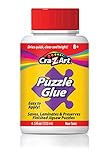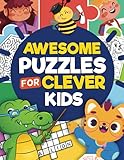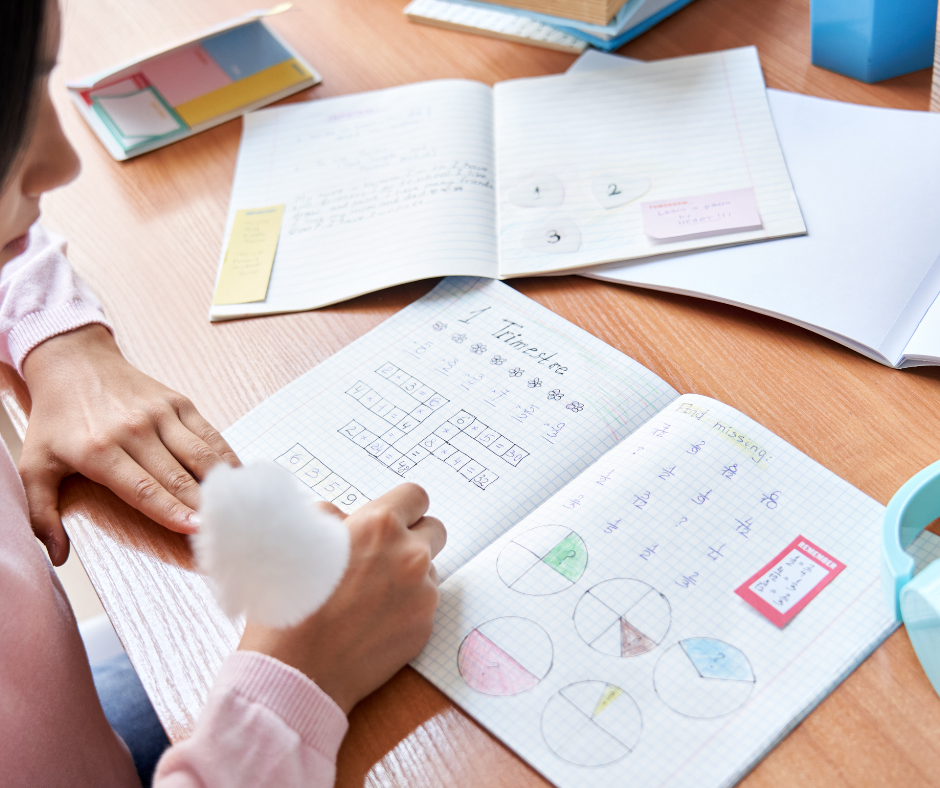Boost Brain Power with Puzzles
Does your child get weary of the same old lessons? Are you on the lookout for homeschool tips to make education not only more engaging but downright fun? We’ve got just the solution to boost brain power with puzzles!
Puzzles aren’t just entertaining; they’re a powerhouse for cognitive development. Engaging in these challenges sharpens problem-solving skills, enhances memory, and fosters a laser-sharp focus.
Through puzzles’ playful aspect, children become absorbed in an activity that is as educational as it is enjoyable. By incorporating puzzles into your homeschooling routine, you’re not just breaking the monotony but unlocking a vibrant and effective way to amplify your child’s learning capabilities.
We’ll unveil the secret behind using puzzles as a fun and effective homeschooling hack to boost children’s brain power.
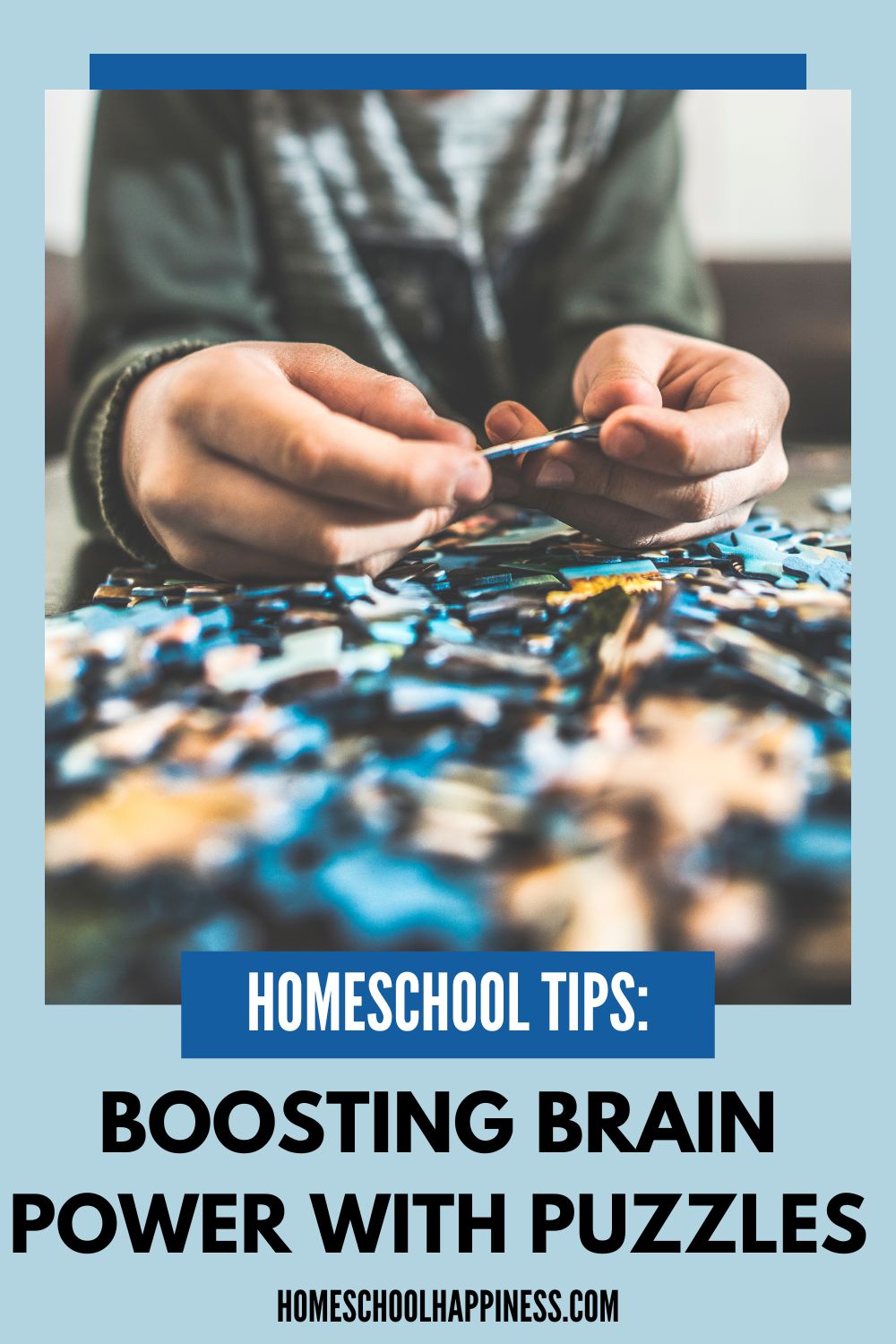
Solving puzzles is more than just matching pieces or filling in blanks; it’s a holistic brain exercise that nurtures critical thinking and creativity.
These activities compel children to think outside the box, improving their intellectual flexibility and allowing them to approach problems from multiple angles.
Puzzles offer a dynamic and interactive learning experience and instill a sense of achievement and confidence in children as they conquer each challenge.
Ready to discover how you can leverage the power of puzzles to brighten your homeschooling adventures? Keep reading for insightful tips and tricks that will transform your teaching experience!
Boost Brain Power with Puzzles
In this section, we’ll explore some practical ways to integrate puzzles into your homeschooling routine effectively. From simple jigsaw puzzles to complex brain teasers, we’ll guide you through selecting the right types of puzzles that will captivate and challenge your child.
Get ready to unlock a world of fun-filled learning that boosts brain power and brings joy and excitement into your educational journey!
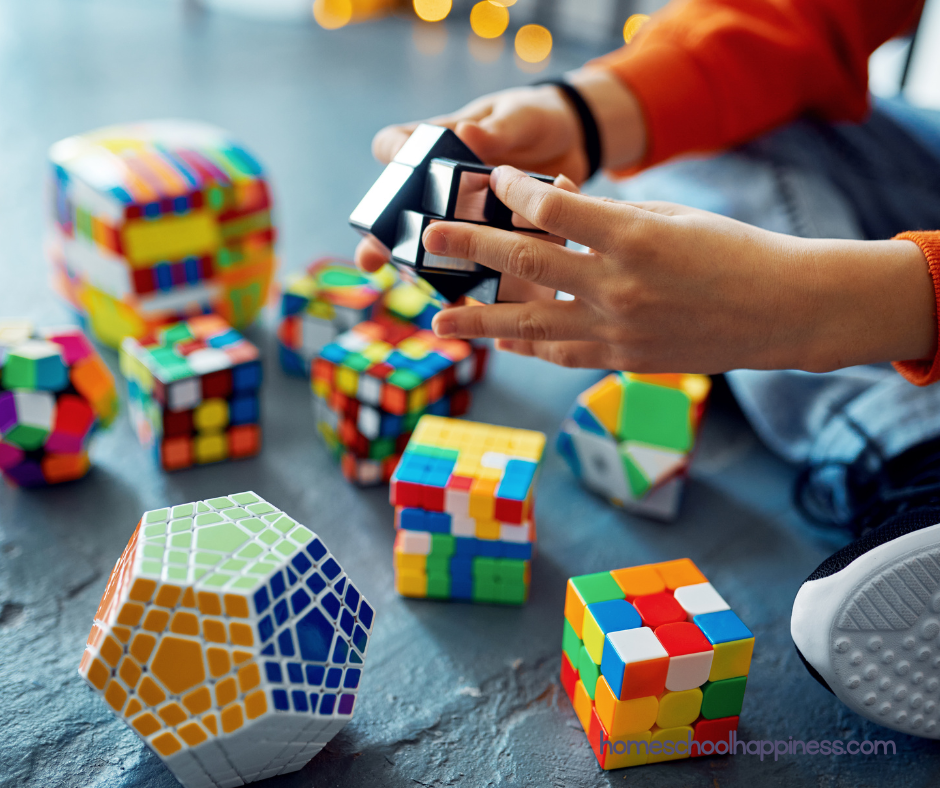
Selecting the Right Puzzle for Your Child
Choosing the ideal puzzle for your child involves understanding their interests and gauging their skill level. This ensures that the puzzle challenges them appropriately while keeping their curiosity piqued.
For Toddlers and Preschoolers
Young children blossom when engaged with simple matching and sorting puzzles. These puzzles help develop their recognition abilities, fine motor skills, and understanding of relationships between different objects.
Look for puzzles with large, easy-to-grasp pieces and vibrant images that relate to their interests, such as animals, vehicles, or shapes.
For Elementary Ages
Children within the elementary age group thrive with more complex puzzles. Jigsaw puzzles offer a moderate challenge and can vary in complexity depending on the number of pieces.
Word searches and crosswords enhance vocabulary and spelling and encourage pattern recognition and problem-solving skills. Opt for puzzles that align with their current learning topics for an added educational boost.
For Older Kids
Older kids and pre-teens are ready to tackle even more sophisticated puzzles. Logic puzzles and brain teasers require thoughtful consideration and strategic thinking, perfect for sharpening those critical reasoning skills.
Sudoku puzzles, which focus on number placement, further enhance logic and concentration. Choose puzzles that match their complexity level to keep them engaged without causing frustration.
By selecting puzzles that are suitably challenging and align with your child’s interests, you’re supporting their cognitive development and fostering a lifelong love for learning.
Incorporating Puzzles into Your Homeschool
Incorporating puzzles into your homeschool routine can transform learning from a mundane task into a thrilling adventure. They break up the day with fun and excitement and reinforce lessons in a unique and memorable way.
Here’s how to seamlessly integrate puzzles into your child’s learning experience, ensuring they are entertained and educated.
Dedicated puzzle time: Designate specific times of the day for puzzle activities. This can be a warm-up exercise to kick off the school day, a quiet activity to calm down, or a rewarding break between lessons. Regular puzzle time encourages routine and gives children something exciting to look forward to.
Integrate puzzles into subjects: Customise puzzles to match your teaching subjects. For math, try puzzles that involve calculations or shapes. Historical crosswords can introduce fun facts or important figures related to your history lesson. This approach helps reinforce the material in an engaging way, making the lessons stick.
Educational puzzle apps and websites as supplements: Take advantage of the vast array of digital resources available. Numerous apps and websites offer puzzles designed to boost various skills, from language arts to science. These tools are great for adding variety to your homeschooling methods and can be especially handy for learning on the go or during downtime.
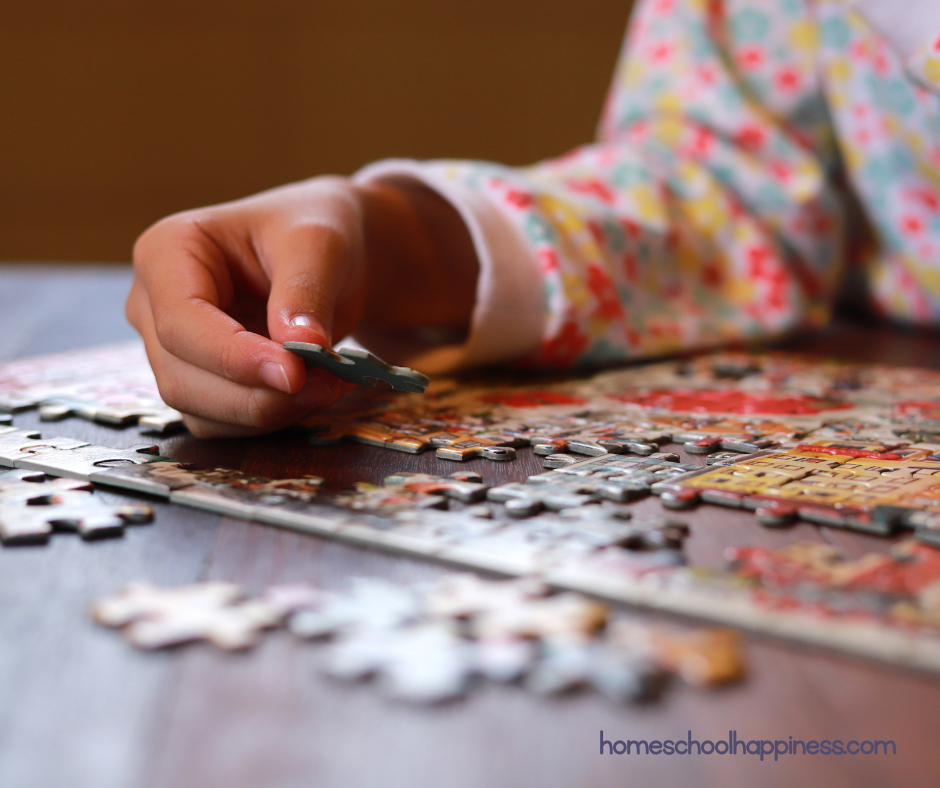
Benefits Beyond Academics
Puzzles do more than enhance academic skills; they offer a wide range of benefits that extend beyond the classroom. Engaging in puzzle activities provides valuable stress relief, allowing children to unwind and relax in a productive way. It’s not just about solving a puzzle; it’s about nurturing patience and perseverance and fostering strong family bonds through collaborative solving sessions.
Stress Relief and Relaxation: Working on puzzles can act as a calming activity, reducing anxiety and promoting a sense of peace. This makes puzzles an excellent tool for children to manage stress effectively.
Develops Patience and Perseverance: The process of solving puzzles requires time and effort. Children learn the value of patience and the rewarding feeling of perseverance when they complete a puzzle, especially a challenging one.
Promotes Family Bonding: Collaborating on puzzles can become a cherished family activity, encouraging teamwork and communication. It’s a fun, engaging way to spend quality time together, fostering stronger familial connections and creating lasting memories.
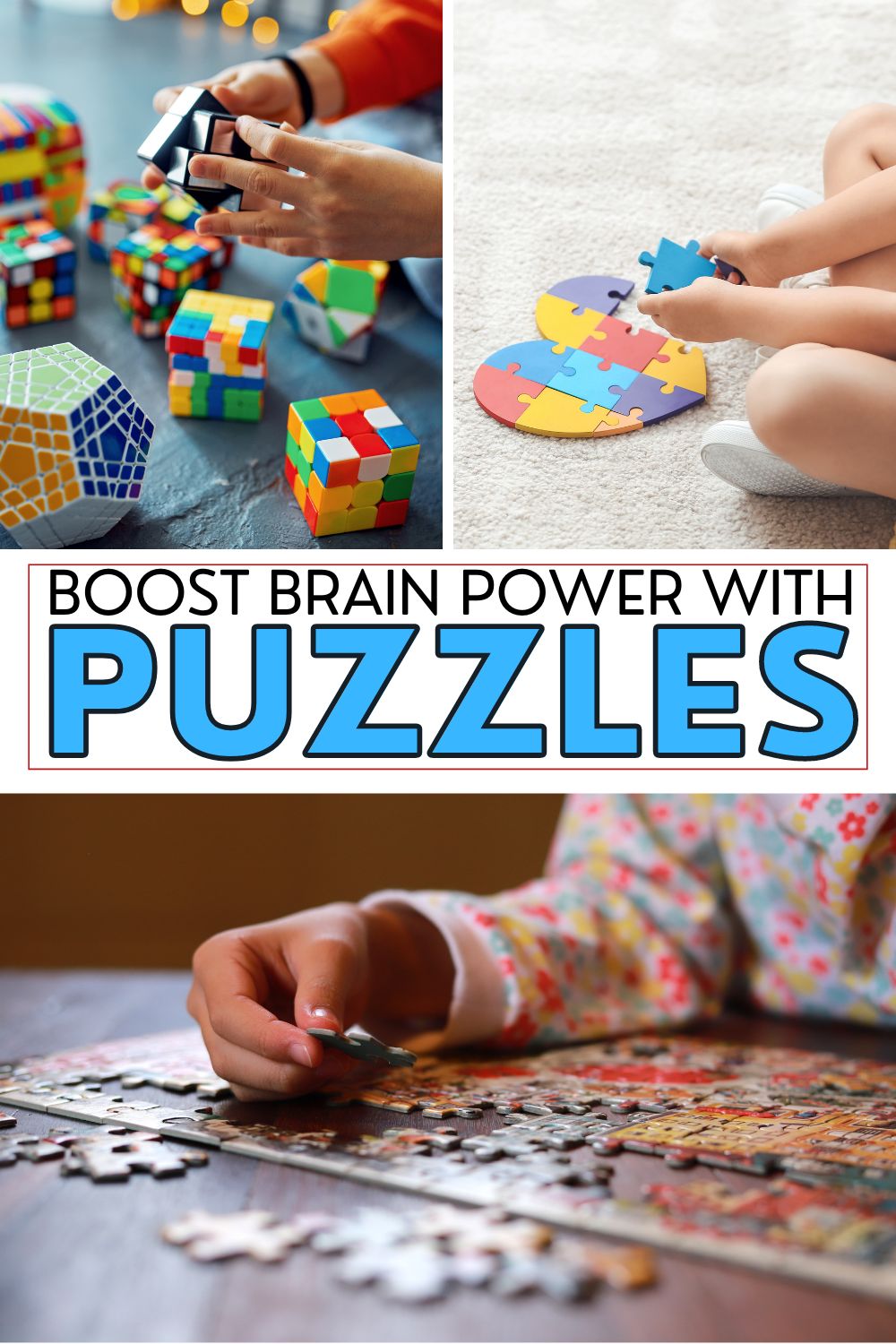
Puzzles stand out as an extraordinarily versatile tool in the homeschooling toolkit, serving not only to bolster academic prowess and enhance critical life skills in your child.
Incorporating puzzles into education deeply enriches the learning experience. They foster a keen love for learning and notably enhance cognitive abilities. Additionally, puzzles contribute to emotional well-being. Importantly, they also strengthen the bonds within families. Thus, the benefits are both profound and diverse.
As you curate your homeschool curriculum, consider enriching it with a diverse array of puzzles that cater to your child’s interests and developmental stage.
These engaging challenges promise to transform routine learning into an adventure, paving the way for a rewarding educational experience.
We encourage you to share your go-to puzzle resources or your family’s favorite puzzles in the comments below. Your insights could inspire and assist other parents in navigating the vast world of puzzles, creating an enriched learning environment for their children.


